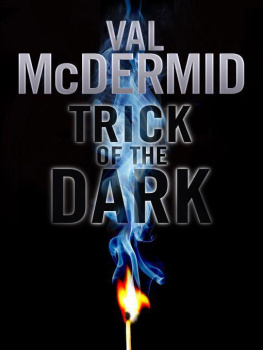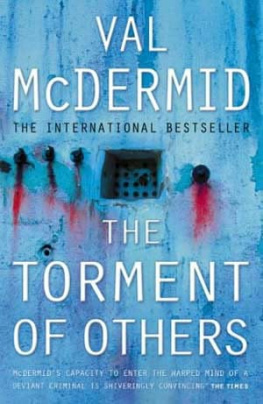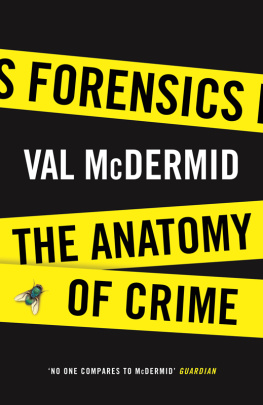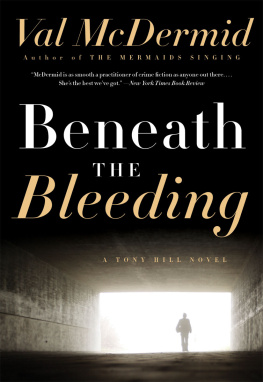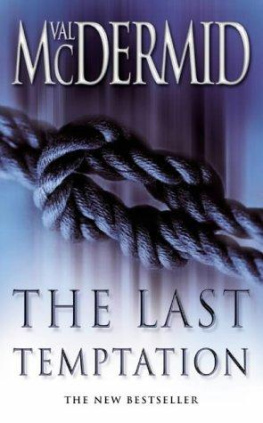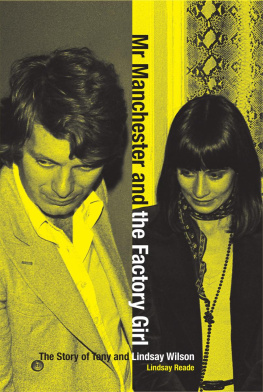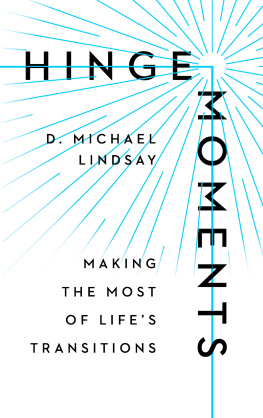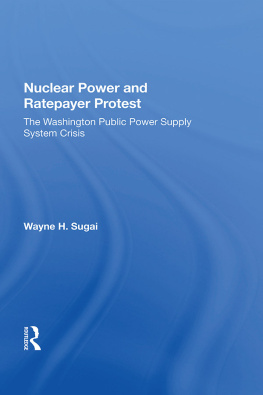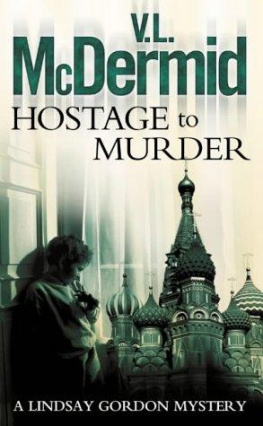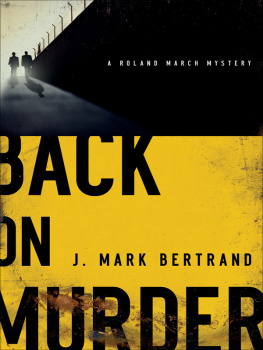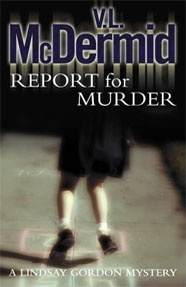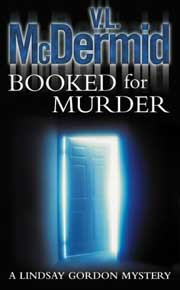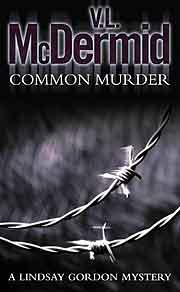Val McDermid - Common Murder
Here you can read online Val McDermid - Common Murder full text of the book (entire story) in english for free. Download pdf and epub, get meaning, cover and reviews about this ebook. genre: Detective and thriller. Description of the work, (preface) as well as reviews are available. Best literature library LitArk.com created for fans of good reading and offers a wide selection of genres:
Romance novel
Science fiction
Adventure
Detective
Science
History
Home and family
Prose
Art
Politics
Computer
Non-fiction
Religion
Business
Children
Humor
Choose a favorite category and find really read worthwhile books. Enjoy immersion in the world of imagination, feel the emotions of the characters or learn something new for yourself, make an fascinating discovery.

- Book:Common Murder
- Author:
- Genre:
- Rating:5 / 5
- Favourites:Add to favourites
- Your mark:
- 100
- 1
- 2
- 3
- 4
- 5
Common Murder: summary, description and annotation
We offer to read an annotation, description, summary or preface (depends on what the author of the book "Common Murder" wrote himself). If you haven't found the necessary information about the book — write in the comments, we will try to find it.
Common Murder — read online for free the complete book (whole text) full work
Below is the text of the book, divided by pages. System saving the place of the last page read, allows you to conveniently read the book "Common Murder" online for free, without having to search again every time where you left off. Put a bookmark, and you can go to the page where you finished reading at any time.
Font size:
Interval:
Bookmark:

Val McDermid
Common Murder
The second book in the Lindsay Gordon series, 1989
For my father
Acknowledgments
Thanks to: Helen for keeping us laughing at Greenham; Andrew Wiatr for advice on computers (any errors are mine); Diana for all the constructive criticism; Lisanne and Jane for their hard work; John and Senga, Laura and Ewan for their hospitality at the crucial point; Sue Jackson for her inimitable skills; and Henry the lawyer for letting me pick his brains.
1
This is murder, Lindsay Gordon complained, leaning back in her chair and putting her feet up on the desk. I cant bear it when theres nothing doing. Look at us. Eight p.m. on the dynamic news desk of a national daily. The night news editors phoning his daughter in Detroit. His deputys straining his few remaining brain cells with the crossword. One reporter has escaped to the pub like a sensible soul. Another is using the office computer to write the Great English Novel.
And the third is whingeing on as usual, joked the hopeful novelist, looking up from the screen. Dont knock it, Lindsay, its better than working.
Huh, she grunted, reaching for the phone. I sometimes wonder. Im going to do a round of calls, see if theres anything going on in the big bad world outside.
Her colleague grinned. Whats the problem? Run out of friends to phone?
Lindsay pulled a face. Something like that, she replied.
As she opened her contacts book at the page with the list of police, fire, and ambulance numbers she thought of the change in her attitude to unfettered access to the office phone since shed moved from her base in Glasgow to live with her lover Cordelia in London. She had appreciated quiet night shifts in those days for the chance they gave her to spend half the night chattering about everything and nothing with Cordelia. These days, however, it seemed that what they had to say to each other could easily be accommodated in the hours between work and sleep. Indeed, Lindsay was beginning to find it easier to open her heart to friends who werent Cordelia. She shook herself mentally and started on her list of calls.
Cliff Gilbert, the night news editor, finished his phone conversation and started checking the computerized news desk for any fresh stories. After a few minutes, he called, Lindsay, you clear?
Just doing the calls, Cliff, she answered.
Never mind that. Theres a bloody good tip just come in from one of the local paper lads in Fordham. Seems theres been some aggro at the womens peace camp at Brownlow Common. Ive transferred the copy into your personal desk. Check it out, will you? he asked.
Lindsay sat up and summoned the few paragraphs onto her screen. The story seemed straightforward enough. A local resident claimed hed been assaulted by one of the women from the peace camp. Hed had his nose broken in the incident, and the woman was in custody. Lindsay was instantly skeptical. She found it hard to believe that one of a group pledged to campaign for peace would physically attack an opponent of the anti-nuclear protest. But she was enough of a professional to concede that her initial reaction was the sort of knee-jerk she loved to condemn when it came from the other side.
The repercussions unfolding outside Fordham police station made the story interesting from the point of view of the Daily Clarion news desk. The assaulted man, a local solicitor called Rupert Crabtree, was the leader of Ratepayers Against Brownlows Destruction, a pressure group dedicated to the removal of the peace women from the common. His accusation had provoked a spontaneous demonstration from the women, who were apparently besieging the police station. That, in its turn, had provoked a counter-demonstration from RABD members outraged at the alleged attack. There was a major confrontation in the making, it appeared.
Lindsay started making phone calls but soon hit a brick wall. The police station at Fordham was referring all calls to county headquarters. Headquarters was hiding behind the old excuse: We can make no statement yet. Reports are still coming in. It was not an unusual frustration. She walked over to Cliffs desk and explained the problem. It might be worth taking a run down there to see what the score is, she suggested. I can be there in an hour at this time of night, and if it is shaping up into a nasty, we should have someone on the spot. I dont know how far we can rely on the lad that filed the original copy. Ive got some good contacts at the peace camp. We could get a cracking exclusive out of it. What do you think?
Cliff shrugged. I dont know. It doesnt grab me.
Lindsay sighed. On the basis of what weve got so far, we could be looking at a major civil disturbance. Id hate the opposition to beat us to the draw when weve got a head start with my contacts.
Give your contacts a bell, then.
There are no phones at the camp, Cliff. British Telecom has shown an incomprehensible reluctance to install them in tents. And besides, theyll probably all be down at the copshop protesting. I might as well go. Theres sod all else doing.
He grinned. Okay, Lindsay, go and take a look. Give me a check call when you get there. Ill see if we can get any more information over the phone. Remember your deadlines- theres no point in getting a good exclusive if we cant get it in the paper.
What about a pic man?
Let me know if you need one when you get there. I seem to remember theres a local snapper weve used before.
Five minutes later, Lindsay was weaving through the London traffic in her elderly MG roadster. She drove on automatic pilot while she dredged all she knew about the peace camp to the surface of her mind.
Shed first been to the camp about nine months before. She and Cordelia had made the twenty-mile detour to Brownlow Common one sunny May Sunday after a long lunch with friends in Oxford. Lindsay had read about the camp in one of the Sunday papers and had been intrigued enough by the report to want to see it for herself. Cordelia, who shared Lindsays commitment to opposing the nuclear threat, had been easily persuaded to come along on that initial visit, though she was never to share Lindsays conviction that the camp was an effective form of protest. For Cordelia, the channels of dissent that came easiest were the traditional ones of letters to the Guardian and MPs. She had never felt comfortable with the ethos of the camp. Cordelia always felt that she was somehow being judged and found wanting by the women who had made that overwhelming commitment to the cause of peace. So she seldom accompanied Lindsay on later visits, preferring to confine her support to handing cash over to Lindsay to purchase whatever necessities the camp was short of, from lentils to toilet chemicals. But for that first visit, she suspended her instinctive distrust and tried to keep her mind open.
The peace camp had started spontaneously just over a year before. A group of women had marched from the West Country to the American airbase at Brownlow Common to protest at the sitting of US cruise missiles there. They had been so fired by anger and enthusiasm at the end of their three-week march that they decided to set up a peace camp as a permanent protest against the nuclear colonization of their green unpleasant land.
Thinking back to that early summer afternoon, Lindsay found it hard to remember what shed expected. What she had found was enough to shatter her expectations beyond recall. They had turned off the main road on to a leafy country lane. After about a mile and a half, the trees on one side of the road suddenly stopped. There was an open clearing the size of a couple of football pitches, bisected by a tarmac track that led up to a gate about 250 yards from the road. The gate was of heavy steel bars covered with chain-link fencing and surmounted by savage angled spikes wrapped with barbed wire. The perimeter fence consisted of ten-foot tall concrete stanchions and metal-link fencing, topped by rolls of razor wire. More razor wire was laid in spirals along the base of the fence. The gate was guarded by four British soldiers on the inside and two policemen on the outside. A sign declared USAF Brownlow Common.
Next pageFont size:
Interval:
Bookmark:
Similar books «Common Murder»
Look at similar books to Common Murder. We have selected literature similar in name and meaning in the hope of providing readers with more options to find new, interesting, not yet read works.
Discussion, reviews of the book Common Murder and just readers' own opinions. Leave your comments, write what you think about the work, its meaning or the main characters. Specify what exactly you liked and what you didn't like, and why you think so.

